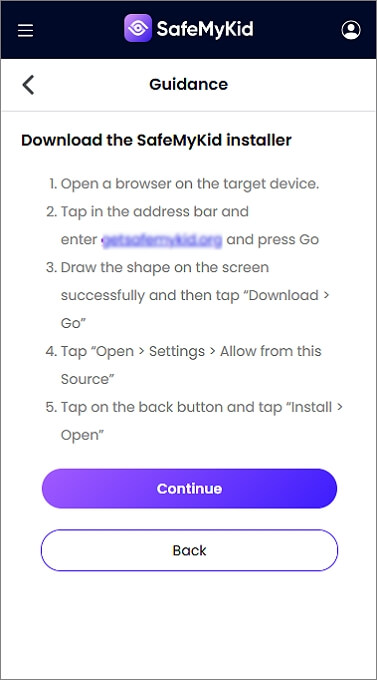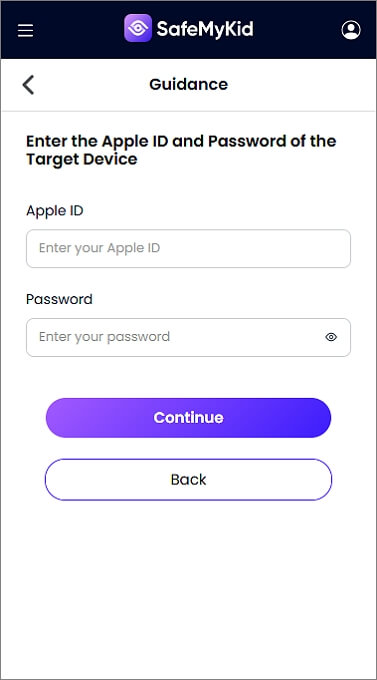What is Cheating? 7 Ways to Spot Infidelity Fast

Cheating is one of the most emotionally devastating experiences in a relationship. It’s often misunderstood and narrowly defined as physical infidelity, but cheating extends far beyond that. Betrayal comes in various forms—emotional, digital, or even through subtle behaviors—and recognizing the signs of cheating is the first step to addressing its impact.
In this article, we’ll answer the question -what is cheating? and understand what it really means with practical examples, and share seven actionable ways to determine if your partner might be unfaithful.

What Is Cheating?
Cheating is any behavior that breaches the trust established in a relationship. Its boundaries differ widely depending on the individuals involved. For one couple, sharing intimate texts with someone else may not qualify as cheating, while for another, it could shatter trust irreparably.
Cheating doesn’t necessarily involve physical acts. It often starts emotionally or digitally. A partner may feel betrayed if their significant other:
- Confides personal feelings or seeks emotional solace from someone outside the relationship.
- Maintains a secretive online friendship that borders on romantic involvement.
- Engages in subtle actions like flirting, which create an emotional wedge in the relationship.
For instance, a married individual spends hours texting an old friend from college. While they assure their partner it’s "nothing serious," they hide these conversations, foster emotional intimacy with the friend, and eagerly await their messages. Even though no physical contact occurs, their partner feels neglected and betrayed.
In another instance, someone in a long-term relationship begins flirting with coworkers at happy hours. Though this seems harmless to them, their partner perceives it as disrespectful because it breaks boundaries previously established in their relationship.
In short, cheating involves more than actions; it’s about intentions, secrecy, and the impact these have on the relationship's foundation of trust.
Why Do People Cheat?
Cheating often results from emotional dissatisfaction, personal insecurities, or unmet expectations. By understanding the triggers of infidelity, you can better recognize and address potential risks.

Unmet Emotional Needs
Relationships thrive on emotional fulfillment. When one partner feels unheard, unseen, or neglected, they may seek solace elsewhere. Emotional neglect often acts as the initial wedge. For instance, a couple where one partner works long hours and becomes emotionally unavailable. The neglected partner may strike up a deep, meaningful connection with a coworker who listens and validates their feelings.
Personal Insecurities and Validation
Sometimes, infidelity stems not from dissatisfaction with the relationship, but from personal insecurities. People cheat to feel desired, admired, or worthy. A partner begins an online fling with strangers, not because they’re unhappy, but because the compliments they receive boost their self-esteem.
Desire for Excitement or Novelty
Monotony in long-term relationships can lead to restlessness. The thrill of something new may push a partner to act recklessly. Imagine after years in a steady, happy relationship, one partner reconnects with an ex-flame on social media. Although they feel no deeper emotional attachment, the adrenaline rush of secrecy motivates them to cheat.
Opportunities and Poor Boundaries
Some cheat simply because an opportunity presents itself, and they haven’t established firm boundaries.
7 Ways to Know If Your Partner Is Cheating
Recognizing the signs of infidelity isn’t about jumping to conclusions but rather about observing behaviors that indicate a shift in your partner’s emotional and physical availability.

1. Sudden Lack of Emotional Intimacy
Cheating often disrupts the emotional bond between partners. If your partner seems uninterested in meaningful conversations, avoids sharing feelings, or becomes withdrawn, it could signal a problem.
Signs to Look For:
- Your partner stops confiding in you, and avoiding discussions about work, family, or dreams.
- They seem distracted and disinterested in planning your future together.
- Attempts to connect emotionally are dismissed or ignored.
2. Unusual Changes in Routine
New, unexplained behaviors often accompany infidelity. Your partner’s altered habits may reflect efforts to conceal their activities.
For instance:
- They suddenly work late hours without a plausible reason.
- They cancel plans at the last minute or seem overly committed to solo activities like gym sessions or hobbies they never cared about before.
- Travel plans or outings seem vague or overly complicated.
Changes in routine can also include growing hypercritical or distant about daily interactions.
3. Secretive Use of Technology
Modern relationships are often tested by technology. Cheaters commonly use messaging apps or social media to communicate discreetly.
What to Notice:
- Their phone is now locked, and they’re reluctant to share passwords.
- They spend long hours texting but don’t reveal who they’re talking to.
- Notifications are silenced when you’re around, or messages are deleted immediately.
5. Frequent Unexplained Absences
Partners engaged in infidelity often become unavailable without a good reason. Unexplained absences or odd alibis can signal trouble.
How It Manifests:
- Coming home late or spending excessive time away under vague excuses.
- Extended work trips or unexplained absences during weekends.
- Avoidance of family events or social gatherings.
These absences often lead to less time spent nurturing the relationship.
6. Defensive or Overly Accusatory Behavior
Partners hiding something often resort to defensiveness or deflection.
What You Might Notice:
- They overreact to minor questions, making you feel guilty for asking.
- Accusations like "You don’t trust me anymore!" come up even in harmless conversations.
- Projection: They start accusing you of cheating without basis, shifting the blame.
7. Appearance of Sudden Self-Care
Cheating often comes with attempts to impress a new love interest. Significant effort in personal grooming, wardrobe, or fitness can signal divided attention.
Examples:
- Your partner begins shopping for trendy clothes or new cologne/perfume.
- They join a gym after years of showing no interest in fitness.
- Small efforts like new hairstyles or nail care become surprisingly frequent.
How to Address Cheating: Use SafeMyKid for Digital Monitoring
If you suspect digital infidelity, that’s where SafeMyKid shines as the ideal solution. Designed for discretion and efficiency, SafeMyKid equips you with the tools needed to monitor suspicious digital activity without being invasive or overly complicated.

Key Features of SafeMyKid:
When faced with signs of potential cheating, relying solely on confrontations or guesswork may not be enough to uncover the truth. SafeMyKid goes beyond traditional approaches, offering a tech-savvy solution with an array of powerful features tailored for precise and ethical monitoring.
- Call and Message Tracking: Access call logs and read SMS and chats from messaging platforms.
- Location Monitoring: See if your partner’s reported whereabouts align with their actual location.
- App Usage Insights: Detect installed dating or hidden apps that facilitate infidelity.
Steps to Use SafeMyKid
Now that you know the features of SafeMyKid, it’s important to understand how you can start using this tool to uncover the truth and address your concerns effectively.
For Android Devices
Step 1.Sign up and create your account using your email address.

Step 2. Set up the SafeMyKid app on this target Android device quickly, without them knowing.

Step 3. Begin remote monitoring in real-time through SafeMyKid’s online dashboard.

For iPhones
Step 1. Create your account for free by entering your valid email address.

Step 2. No app installation is required! Simply set up SafeMyKid on the target iPhone using only the owner’s iCloud credentials.

Step 3. Begin to use SafeMyKid for remote monitoring from the online dashboard.

Why SafeMyKid Is Recommended:
SafeMyKid is the ultimate tool because it’s designed to be both effective and ethical. If you’ve noticed signs of infidelity but are hesitant to jump to conclusions, this app helps you gather information in a discreet and efficient manner. It provides clarity, empowers your decisions, and respects your need for subtlety.
By simplifying the monitoring process for both Android and iPhone users, SafeMyKid offers peace of mind without unnecessary complications. Trust SafeMyKid to provide the tools you need to navigate your relationship with confidence and understanding.
Start reclaiming your peace of mind with SafeMyKid today.
Official vs. Third-Party Tools
While official tools provide a secure and reliable means of accessing and managing data, third-party tools offer additional flexibility and advanced features, making them a valuable alternative depending on your specific needs. We will compare both methods here.
Official Methods
Open communication or therapy can be the official route for addressing infidelity suspicions. While this promotes healthy dialogue, partners who are defensive or dishonest may avoid confronting the truth.
Advantages:
- Encourages openness and honesty.
- Can repair broken trust with effort.
Disadvantages:
- Relies on both partners being transparent.
- Denial and deflection might derail progress.
Limitations of Third-Party Tools
Third-party tools offer a clearer view of your partner’s behavior but depend on access to Android devices. Hidden accounts may not always be trackable.
Frequently Asked Questions
To address any additional concerns and provide further clarity, here are some frequently asked questions about ways to know your partner is cheating:
1. Can emotional cheating hurt a relationship as much as physical cheating?
Yes, emotional cheating can cause significant harm. Emotional infidelity often leads to a breach of trust, emotional withdrawal from the relationship, and feelings of neglect or betrayal, even if there’s no physical component involved.
2. Is using monitoring apps like SafeMyKid ethical in relationships?
Using monitoring apps like SafeMyKid is ethical when used transparently to uncover hidden truths while protecting your emotional well-being. Ideally, both partners should communicate openly and set clear boundaries regarding privacy and trust before resorting to such tools.
3. How can I address my suspicions without accusing my partner unfairly?
Start by discussing your feelings calmly without making direct accusations. Frame your concerns as a need for clarification rather than confrontation, and allow your partner the opportunity to explain their behavior or feelings.
4. Is it possible to rebuild trust after cheating?
Yes, rebuilding trust is possible but requires effort from both partners. This often involves open communication, accountability, forgiveness, and sometimes professional counseling or therapy.
Conclusion
Understanding what is cheating is essential, as it can take many forms and often stems from unmet expectations or lack of communication. Recognizing the signs of infidelity enables couples to address the underlying issues and work towards rebuilding trust. Tools like SafeMyKid offer additional support by fostering transparency and helping uncover the truth without adding unnecessary strain. By prioritizing honesty and clear boundaries, couples can navigate challenges, strengthen their bond, and grow together.



